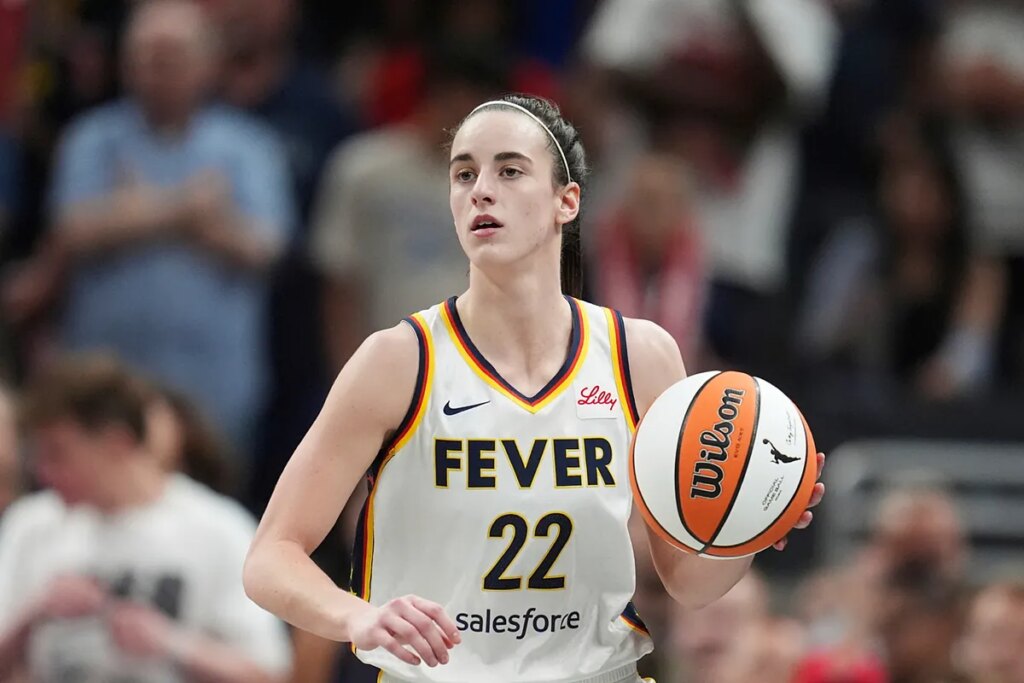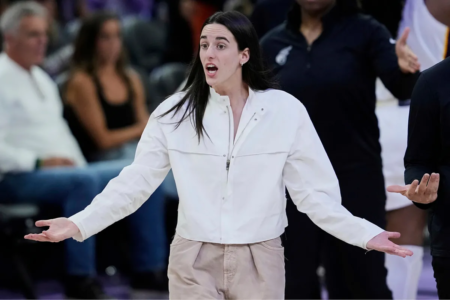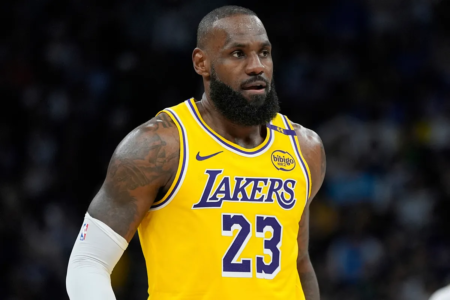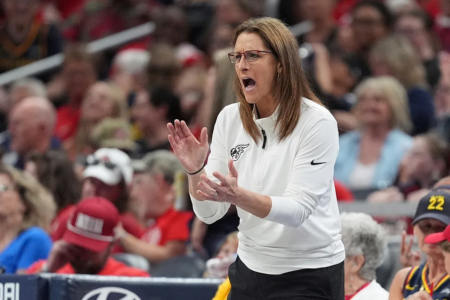Over recent weeks, Indiana Fever rookie Caitlin Clark has found herself at the heart of heated WNBA discussions, not for dazzling performances, but for high-turnover games, aggressive contact, and swelling criticism both on and off the court.
Caitlin Clark endured one of her most difficult outings yet during the Fever‘s recent win over the Seattle Storm.
Guarded fiercely by Gabby Williams, Clark was limited to just six points, tying her lowest output of the season, even as Indiana managed a 9486 triumph. Her stat line raised eyebrows: zero of six on threepointers and eight turnovers.
Fan backlash-social media erupts
Shortly after, a viral X post from Trendyhoopstars exclaimed, “For the first time in her career, Caitlin Clark recorded more turnovers than points in a game,” igniting a swell of criticism.
Comments ranged from mocking remarks to pointed analytics: “Leading league in total turnovers despite missing games. Yikes.” But the context is crucial.
Despite missing five games midseason due to a left quad strain, Clark still ranks among the WNBA’s most utilized players.
The heavy minutes likely contributed to her inconsistency. Even elite rookies face growing pains. Candace Parker averaged 2.8 turnovers per game in her 2008 debut, while Clark currently averages around 5.8 per game.
With Clark quarterbacking nearly every offense, wobbling under pressure is almost inevitable.
Mid-season physicality tests rookies
Meanwhile, the searing intensity of WNBA matchups has spotlighted issues with officiating. In a brutal clash against the Connecticut Sun, Clark was knocked to the ground by Marina Mabrey, heightening tensions and leading to multiple fines.
Mabrey even saw her technical call upgraded to a flagrant 2. Coach Stephanie White lambasted the officiating as outdated and harmful, emphasizing that insufficient enforcement jeopardizes player safety.
Adding fuel to the fire, iconic voices are weighing in. ESPN’s Stephen A. Smith noted the resentment Clark has generated, not because of her play, but because of what her star power represents.
He praised her contribution to higher ratings and improved conditions for veterans, urging critics to “grow up”.
Meanwhile, tennis great Chris Evert called the latest uproar a “bad look” and admonished WNBA “stars” for failing to support Clark following the incident with Mabrey & Cunningham.
Sports analytics columnist Christine Brennan and Dave Portnoy echoed similar frustrations.. Broader concerns over officiating consistency are growing, partly due to reliance on parttime officials and the absence of oversight tools commonly used in the NBA.
Clark‘s midseason quad injury further complicates her rookie narrative. She missed around two weeks and, even after returning, continued logging heavy minutes (33-35 per game) during Indiana’s 7-7 stretch. Those extended court time and relentless scrutiny take a toll, even on future stars.
Read the full article here











